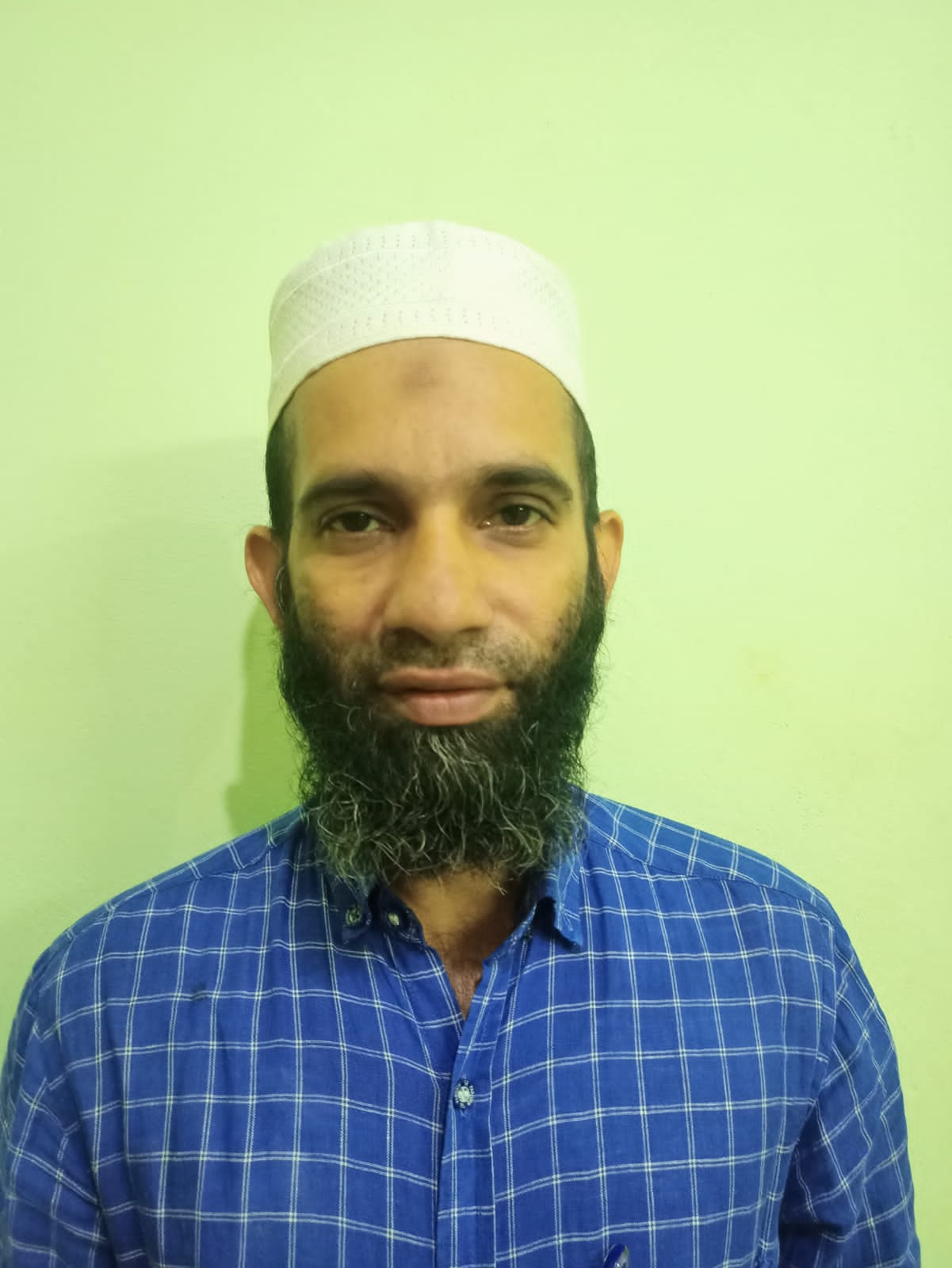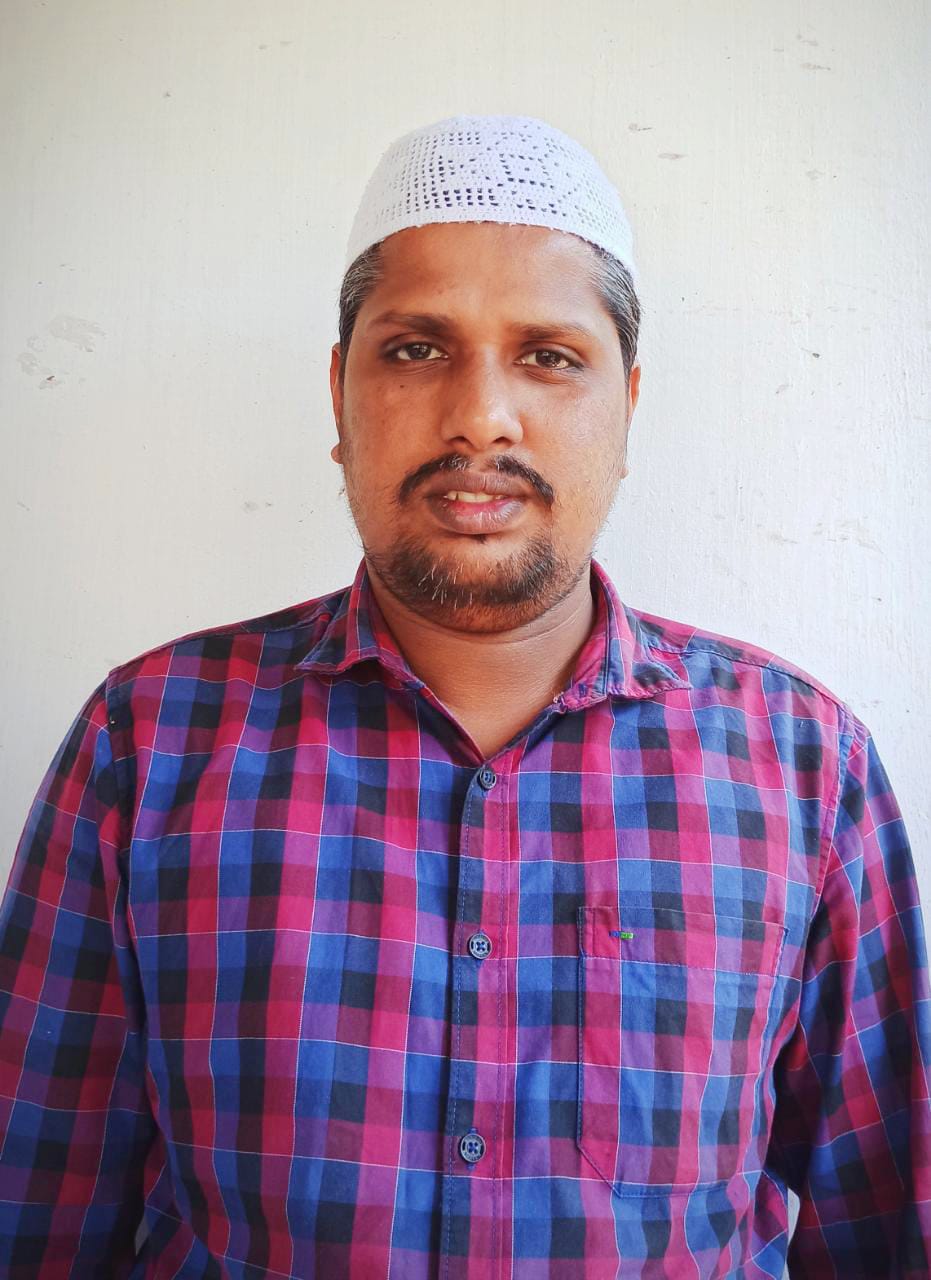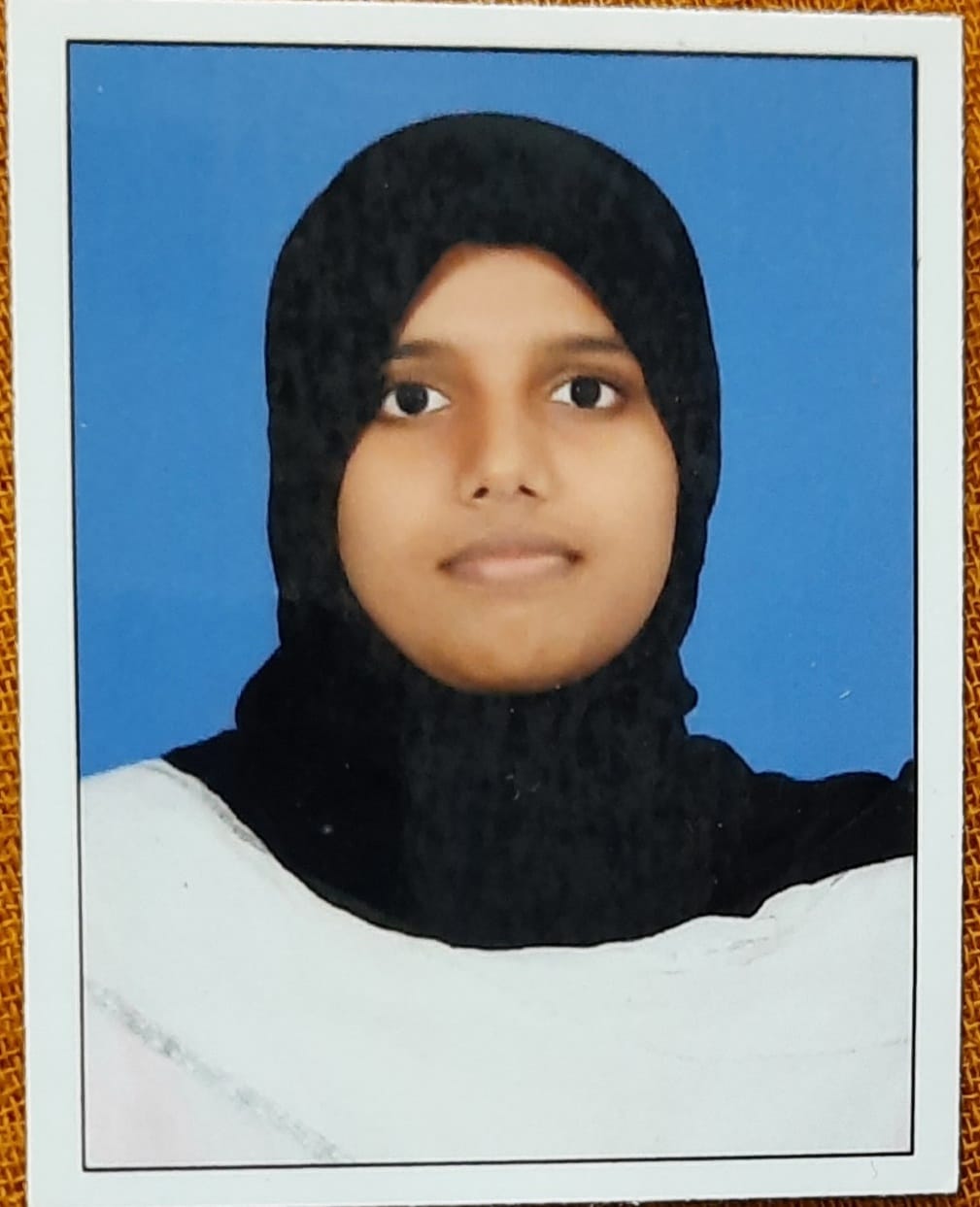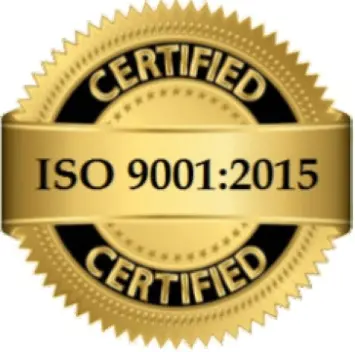Electrical & Electronics Engineering
DEPARTMENT OF ELECTRICAL AND ELECTRONICS ENGINEERING
VISION
To mould socially responsible Electrical Engineers capable of addressing professional challenges.
MISSION
M1- To empower students with quality education blended with practical engineering skills and prepare them for professional career.
M2- To enrich students with recent trends and skills through training programs, industrial interactions, guest lectures and workshops.
M3- To mould professionals with ethical values and soft skills, who can contribute to the society.
PROGRAM EDUCATION OBJECTIVES – (PEOs)
Our graduates will be able to:
PEO1- Professional skills: Apply technical knowledge and practicing skills to analyse, design and solve real-life Electrical engineering problems.
PEO2- Lifelong learning: Engage in lifelong learning to demonstrate professional skills & to emerge as experts. PEO3- Versatility and Integrity: Work in multidisciplinary environment and to exhibit team work and leadership skills.
PEO4- Social Responsibility: Become productive citizens with ethical values contributing to the benefit of the society.
PROGRAM SPECIFIC OUTCOMES – (PSOs)
Our graduates will be able to:
PSO1: Technical Skills: Exhibit technical skills to design and develop electrical systems, analog and digital electronic circuits, electrical machines and control systems.
PSO2: Problem Analysis: Identify and analyse problems in the field of Power systems and Power electronics, and promote energy conservation and sustainability.
PSO3: Project Management: Solve problems of Power systems and Power Electronics using software tools and hardware.
PSO4: Engineering for Sustainability: Demonstrate ethical reasoning, creative problem solving, economic analysis, and an understanding of sustainable engineering and the Indian Constitution to successfully tackle engineering and management challenges.
Electrical and Electronics Engineering (EEE), is one of the evergreen branches in Engineering with such diverse and dynamic area of study, making it the foundation for all technological development. This versatile branch is the basis for techshoots in Electronics and communication, Computer Science engineering etc.
Graduation in EEE leads to potential career in the field of design, systems analysis, manufacturing, installation, commissioning, control & maintenance, quality assurance & testing of Electrical and Electronics system; information technology, programming, consultancy, management and software Engineering. Recent advancement such as Smart grid, Green energies, Electrical vehicles, Artificial intelligence, Robotics etc are awaiting Electrical engineers.
The Department of EEE was established in the year 2002 with the vision of molding quality Electrical Engineers capable of addressing global challenges, ready to impart their knowledge for technological & socio-economic development of the society. Well qualified and experienced faculty members, structured teaching methodology, state of the art- well equipped labs, department Library with good stock of books, computing facility etc. are the strengths of the Department. The Association of EEE Department “Resurgence” organizes seminars, workshops, Technical events, assistance for NPTEL SWAYAM MOOC courses etc. to bridge the gap between Academia & Industries.
Department Labs
- Electrical Machines Lab
- Electrical Measurement Lab
- Advanced Electrical Lab
- Computer Centre with 30 terminals
- Electrical Workshops
- Power Electronics Lab
- Department Library
Department level Committee
Curriculum and Syllabus
Curriculum
| B.Tech curriculum 2015 APJAKTU | Click here |
| B.Tech curriculum 2019 APJAKTU | Click here |
| B.Tech curriculum 2024 APJAKTU | Click here |
Syllabus
2015 Scheme
| S1, S2 Syllabus | Click here |
| S3,S4 Syllabus | Click here |
| S5,S6 Syllabus | Click here |
| S7,S8 Syllabus | Click here |
2019 Scheme
| S1-S8 Syllabus | Click here |
2024 Scheme
| S1, S2 Syllabus | Click here |
| S3-S8 Syllabus | Click here |
Regulations
This may be called the A. P. J. Abdul Kalam Technological University Academic Regulations for B. Tech, 2019. These are subject to the provisions of the APJ Abdul Kalam Technological University Act, 2015, the statutes and ordinances if any issued in the subject from time to time. It is the express understanding that these regulations are subject to the approval of the concerned statutory bodies of the University. These regulations shall be applicable for students admitted from 2019 onward.
| B.Tech Regulations 2015 | Click here |
| B.Tech Regulations 2019 | Click here |
| B.Tech Regulations 2024 | Click here |
Department Handbook
Professional Bodies
IEEE
The IEEE chapter at AWH Engineering College is a vibrant student-led organization dedicated to fostering innovation, learning, and professional development in the fields of electrical, electronics, and computer engineering. It serves as a platform for students to engage with the latest technologies, enhance their technical skills, and build a network with industry professionals and academic experts.
Through various activities, including workshops, seminars, technical projects, coding challenges, and hackathons, the IEEE AWH chapter strives to keep its members updated with the rapidly evolving technological landscape. Additionally, it provides opportunities for students to collaborate on cutting-edge research and development, while also emphasizing leadership, teamwork, and communication skills.
Being part of the IEEE at AWH College offers members access to global IEEE resources, conferences, and a wide array of professional development opportunities, helping them grow as competent engineers and innovators. Whether you're interested in electronics, programming, robotics, or any other tech-related field, the IEEE chapter at AWH College is the ideal environment to nurture your passion and skills.
International Centre for Free and Open Source Solutions (ICFOSS)
The International Centre for Free and Open Source Solutions (ICFOSS) at AWH Engineering College is a prominent initiative that aims to promote the adoption and development of Free and Open Source Software (FOSS) among students and faculty. As part of the college's commitment to fostering innovation, ICFOSS provides a platform for students to explore, learn, and contribute to the world of open-source technology, equipping them with the skills needed to excel in the rapidly evolving IT landscape.
ICFOSS at AWH Engineering College offers a range of activities, including workshops, seminars, coding competitions, and collaborative projects, all focused on free and open-source technologies. The center also facilitates collaborations with various organizations, industry experts, and open-source communities, allowing students to work on real-world projects and gain hands-on experience.
By actively engaging with FOSS, the center aims to instill in students the importance of software freedom, transparency, and community-driven development. Through these initiatives, ICFOSS at AWH Engineering College nurtures a spirit of innovation, problem-solving, and collaboration, empowering students to create and share solutions that can have a global impact.
Students involved in ICFOSS get the opportunity to learn about various open-source tools, contribute to existing projects, and even start their own open-source initiatives, fostering a deep understanding of the software development lifecycle and collaborative coding practices. This exposure significantly enhances their technical capabilities and prepares them for careers in technology and software development.
IEDC
The Innovation and Entrepreneurship Development Cell (IEDC) at AWH Engineering College is dedicated to fostering a culture of innovation, creativity, and entrepreneurship among students. The IEDC aims to nurture entrepreneurial skills and provide a platform for students to transform their ideas into successful ventures. By organizing workshops, training sessions, and networking events, the cell encourages students to explore the startup ecosystem and equips them with the necessary resources, mentorship, and guidance.
The IEDC at AWH Engineering College also collaborates with industry professionals, alumni, and experts to create opportunities for hands-on learning and real-world exposure. Through various programs and initiatives, the cell plays a vital role in supporting students in turning innovative concepts into viable business solutions, contributing to the development of future entrepreneurs and leaders.
MuLearn
MuLearn is an innovative learning platform designed to empower students and professionals with practical knowledge and skills across a wide range of subjects, especially in the fields of technology, entrepreneurship, and innovation. With a focus on hands-on learning, MuLearn provides interactive courses, workshops, and real-world problem-solving opportunities, enabling users to gain industry-relevant expertise.
The platform emphasizes personalized learning experiences and encourages active participation through collaborative projects and mentorship programs. MuLearn offers resources that bridge the gap between academic knowledge and industry requirements, making it an ideal choice for individuals looking to enhance their skills in a rapidly evolving world. Whether for students aiming to kick-start their entrepreneurial journey or professionals seeking career advancement, MuLearn serves as a valuable tool for continuous learning and growth.
Labs and Facilities
1. Electrical Workshop
The Electrical Workshop provides practical training in basic electrical installations and wiring. Facilities include:
- Tools and accessories for wiring and troubleshooting
- Training boards for domestic and industrial wiring
- Circuit breaker and protective devices setup
- Switchboards and panelboards
- Students gain hands-on skills in wiring, circuit design, and maintenance, preparing them for real-world challenges in electrical installations.
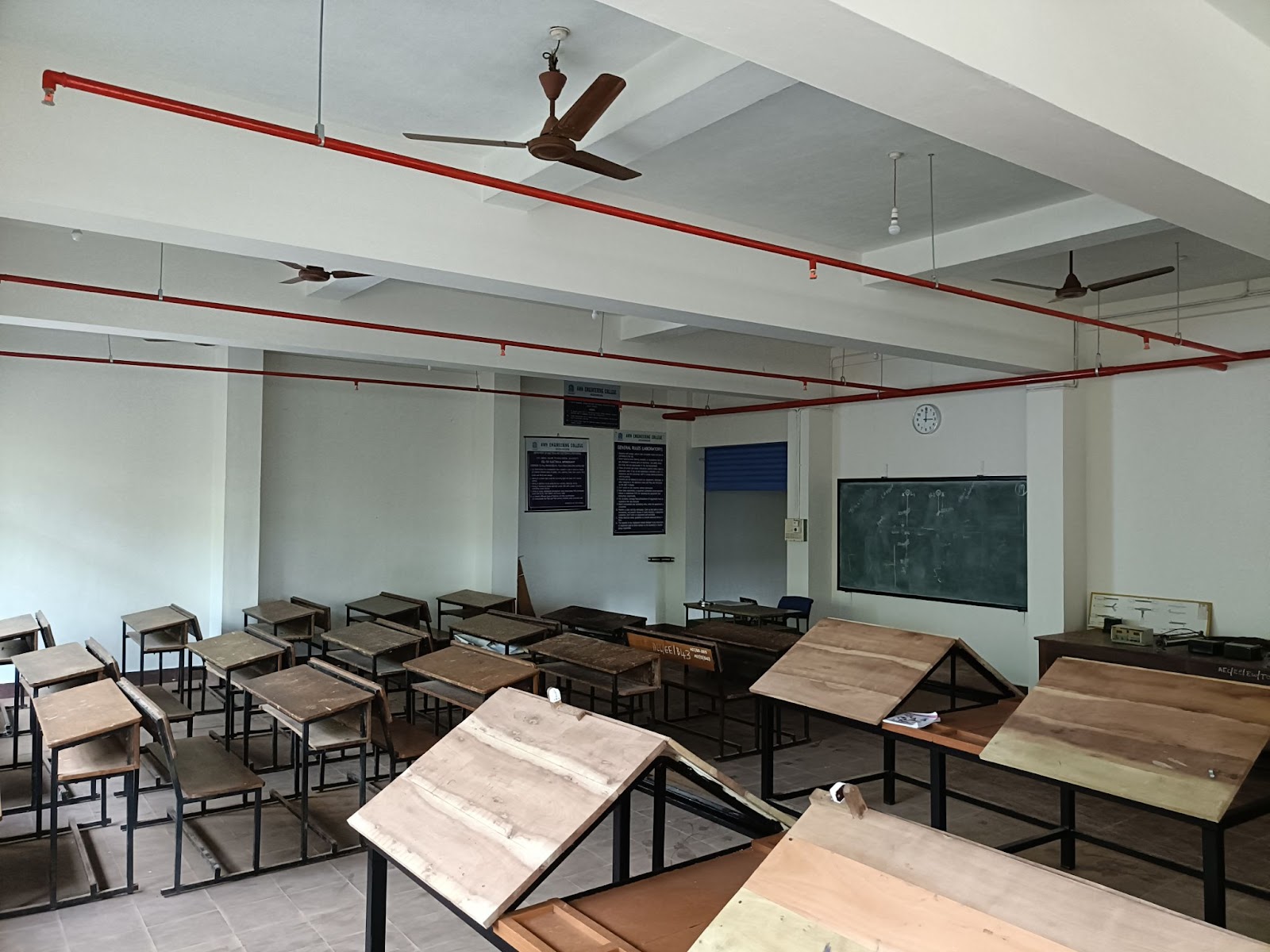
2. Circuits and Measurements Lab
This lab focuses on fundamental electrical circuits and measurement techniques, offering facilities to study circuit behavior and measurement principles. It houses:
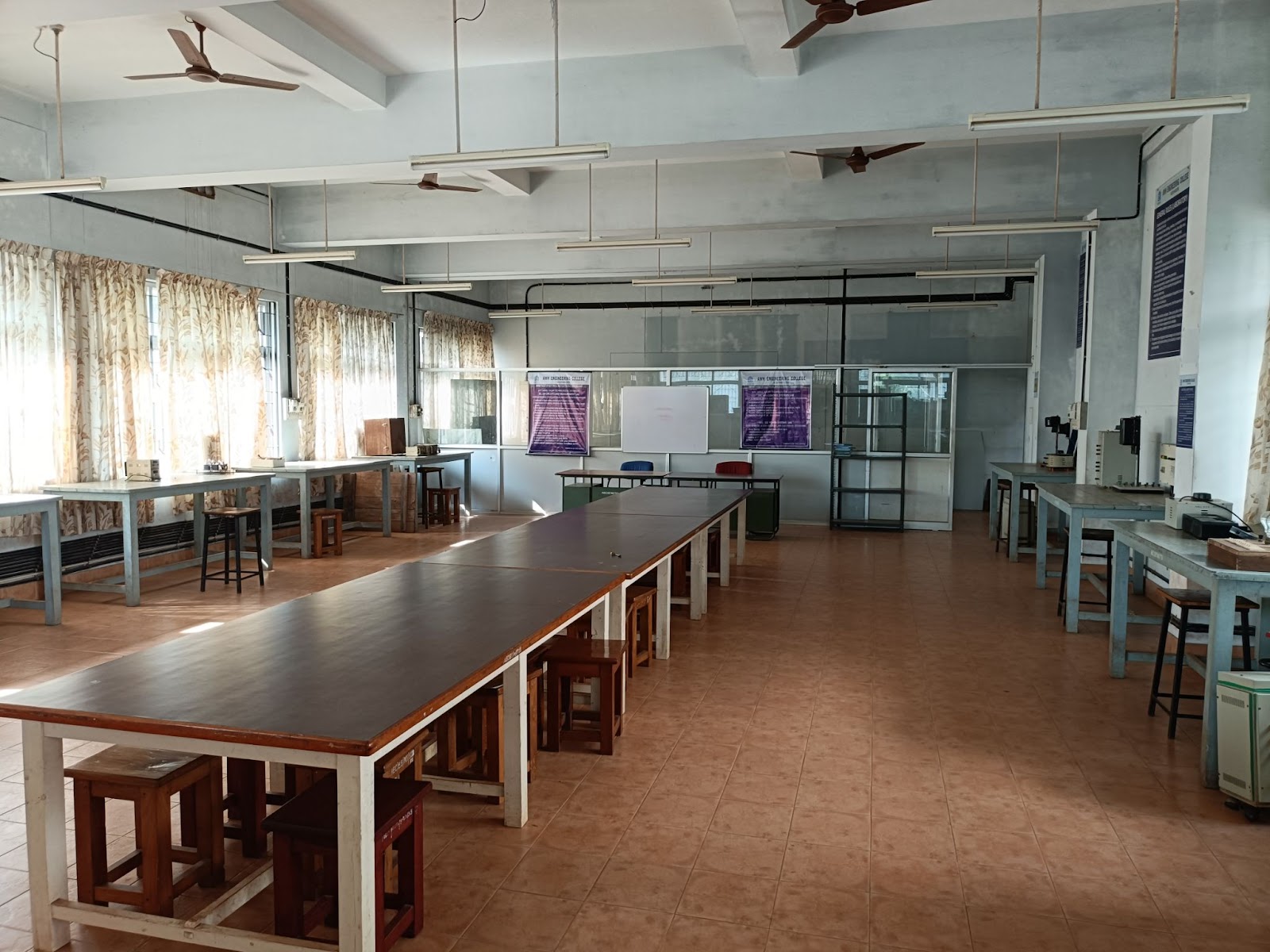
- Analog and digital multimeters
- Function generators and oscilloscopes
- DC and AC power supplies
- Resistive, inductive, and capacitive load banks
- Bridge circuits for resistance, inductance, and capacitance measurement Students learn to analyze electrical circuits and use precise measurement tools, which are crucial for real-world applications.
3. Advanced Electrical Lab
The Advanced Electrical Laboratory is designed to cater to the needs of modern power systems and control applications. Facilities include:
- Programmable logic controllers (PLC)
- SCADA systems
- Microcontroller and microprocessor kits
- Process Control Simulator
- Renewable energy setup (solar panel) This lab provides a platform for advanced research and practical experiments in smart systems and automation.
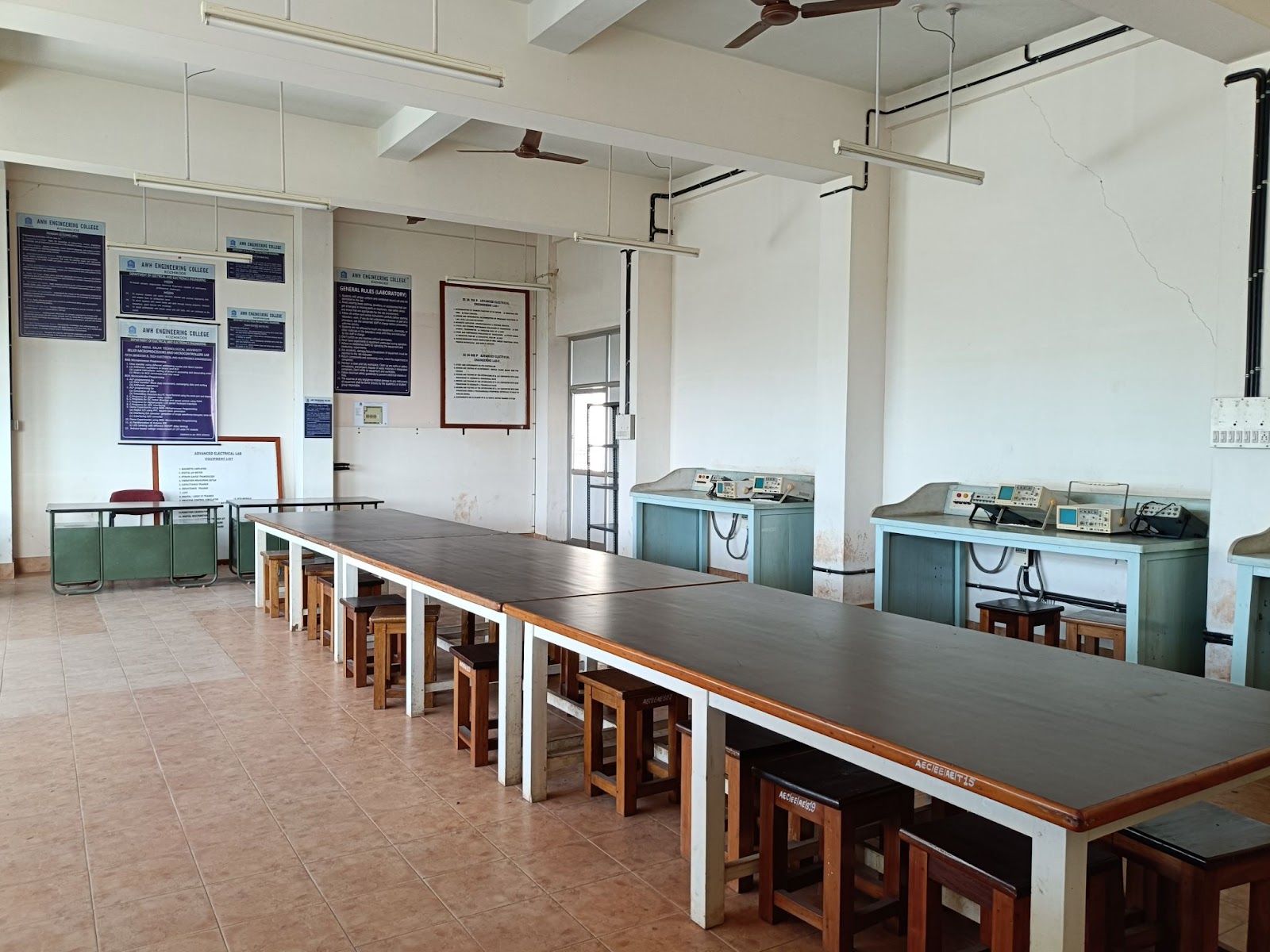
4. Simulation Lab
The Simulation Lab offers a modern computational environment for analyzing and designing electrical systems. Equipped with high-performance computers and licensed software such as:
- MATLAB/Simulink
- PSCAD
- ETAP
- PSpice
Students can simulate electrical circuits, power systems, and control systems, bridging the gap between theoretical concepts and practical applications.
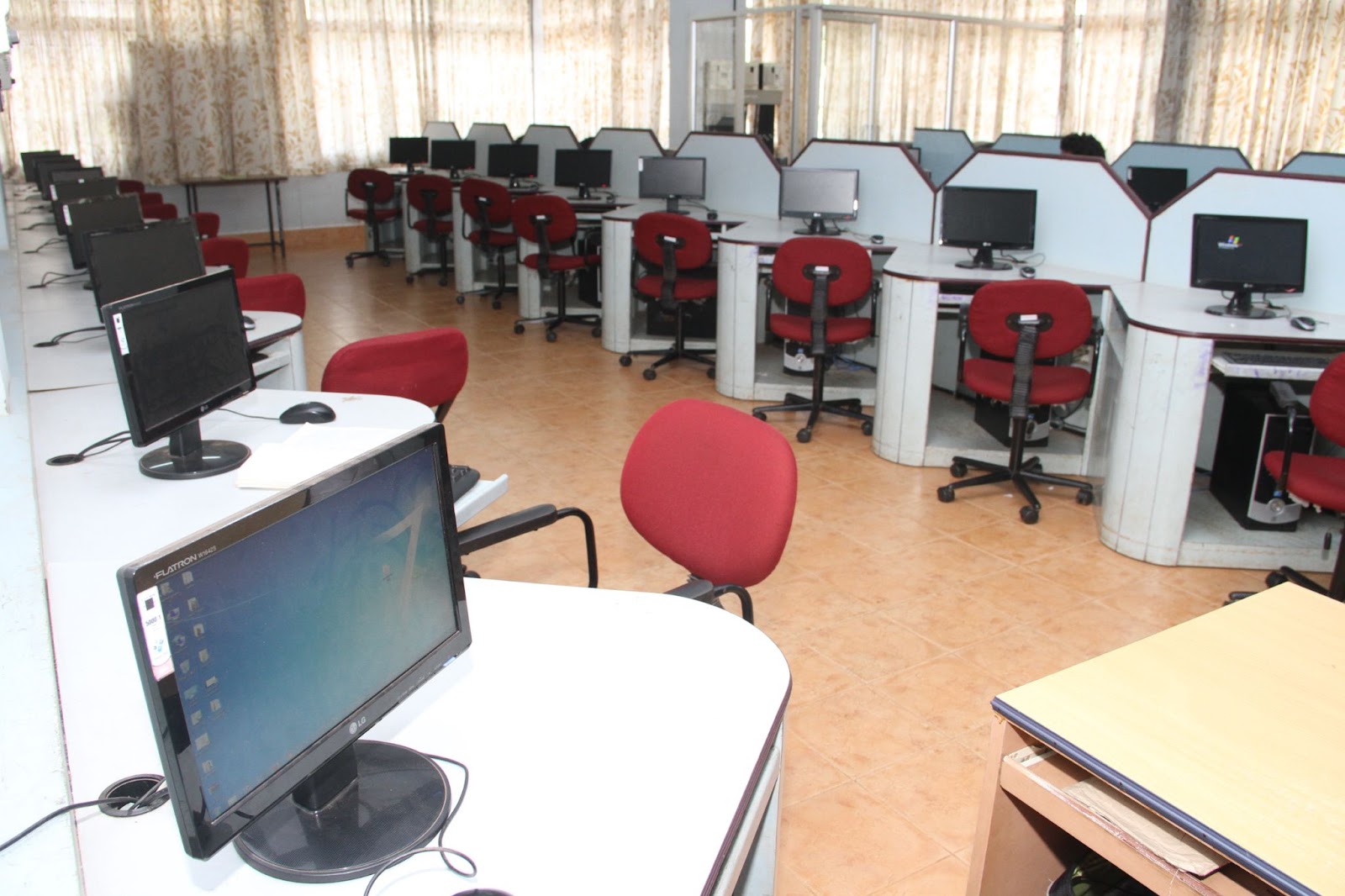
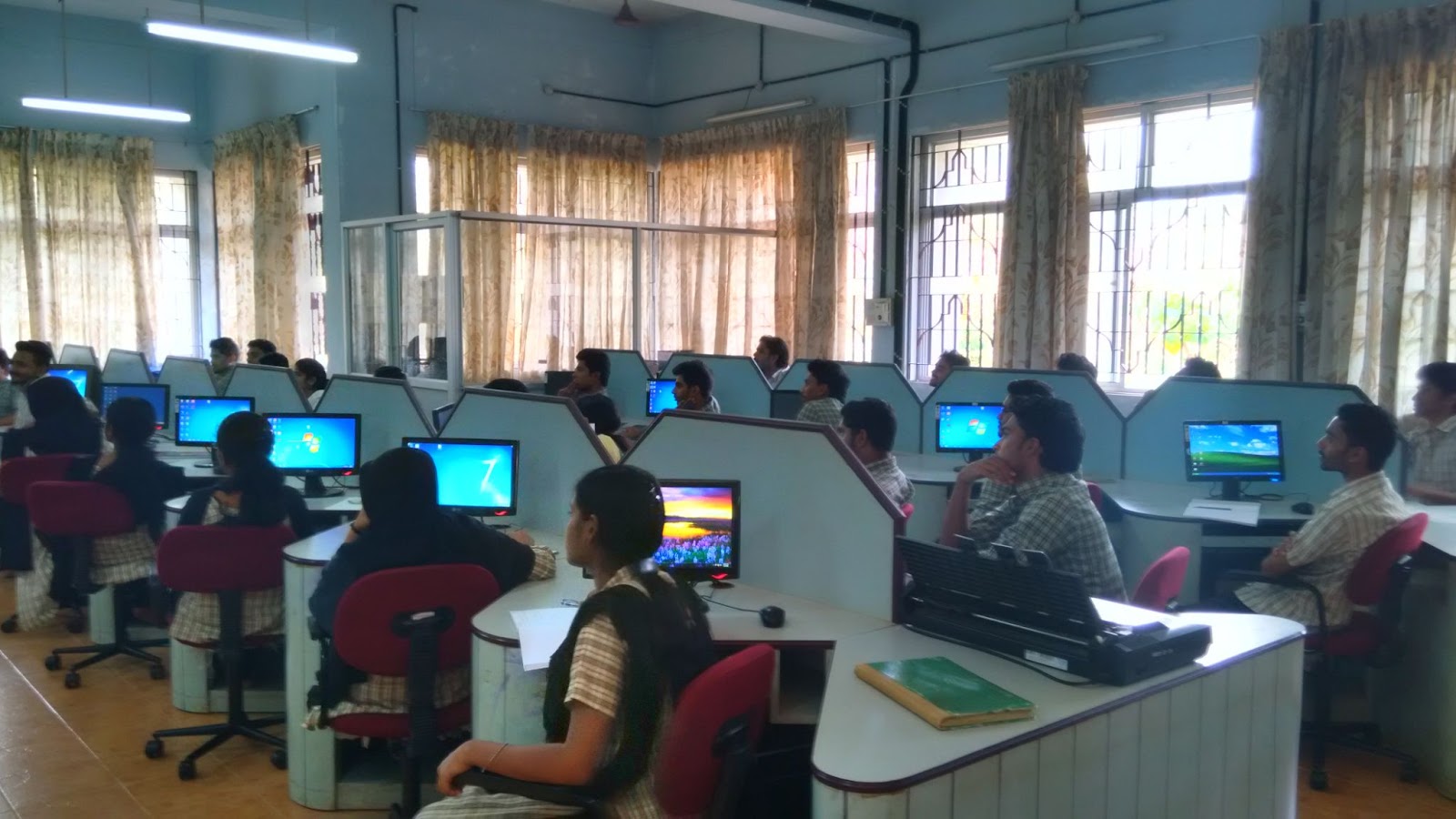
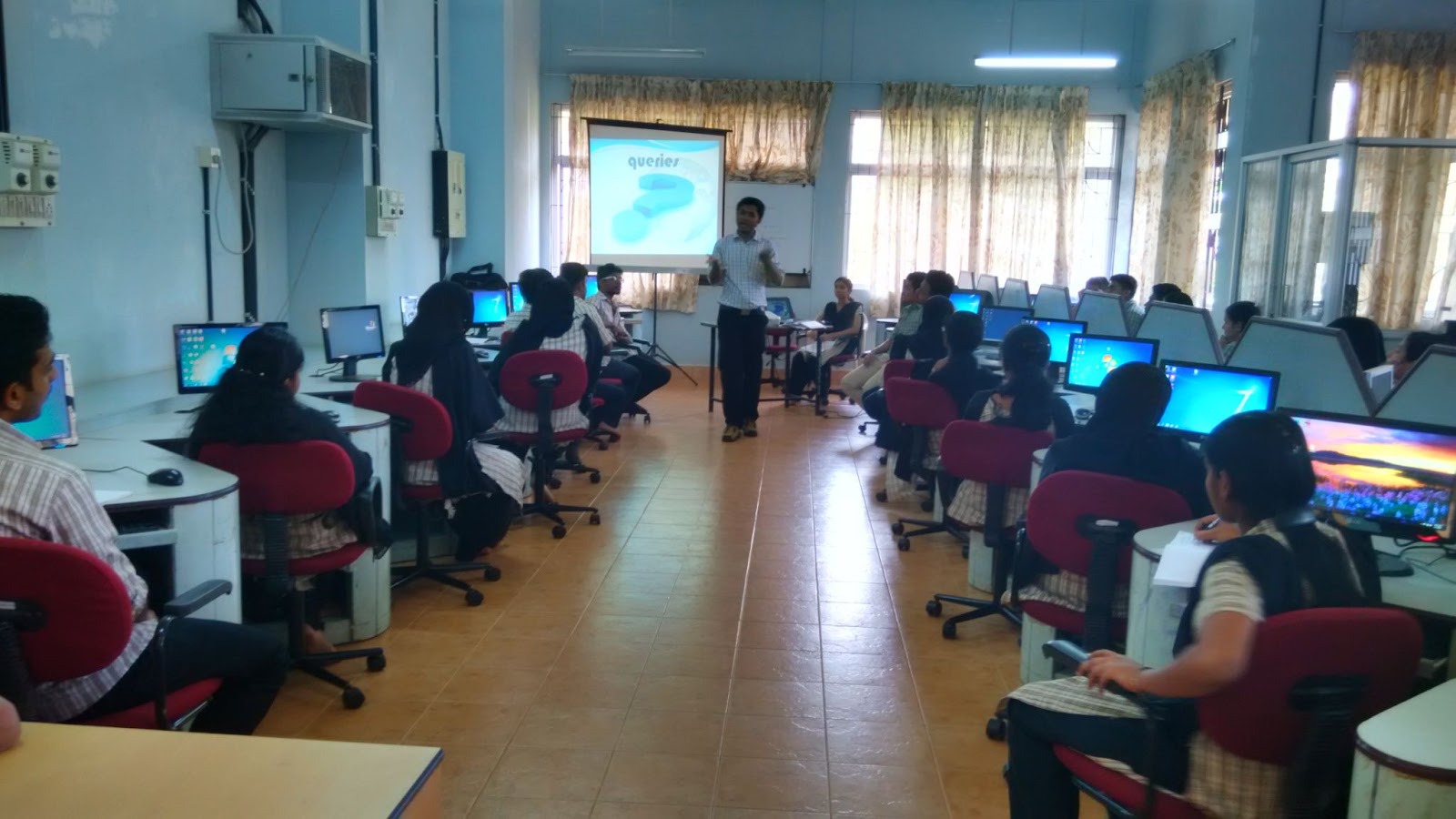
5. Power Electronics Lab
This lab enables students to explore the field of power electronics and its applications in energy conversion. The lab facilities include:
- DC-DC converters
- Inverters and rectifiers
- IGBT and MOSFET
- Gate driver circuits
- AC-DC drives and their controllers
Experiments include design and testing of power electronic circuits, motor drives, and renewable energy integration systems.
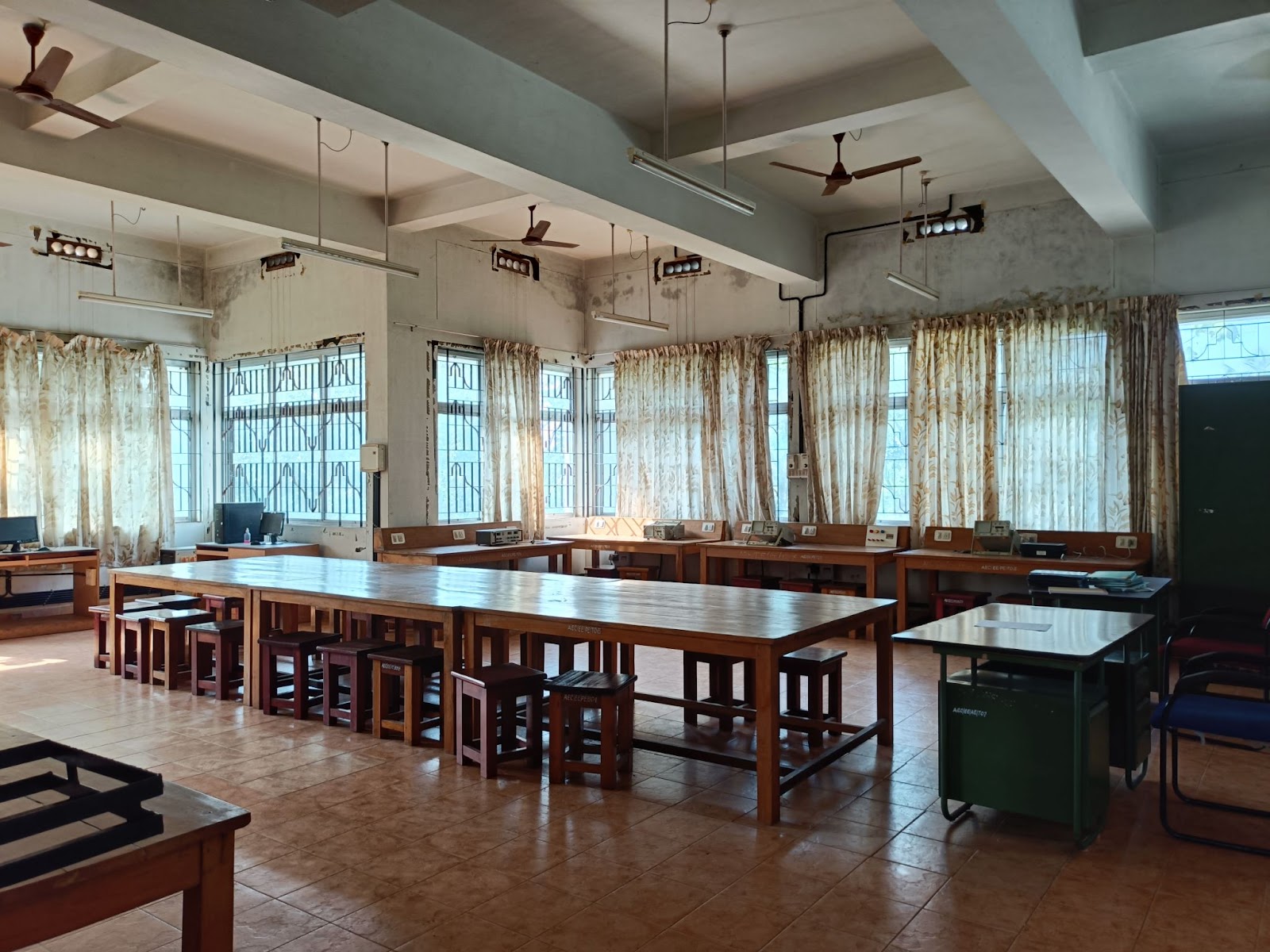
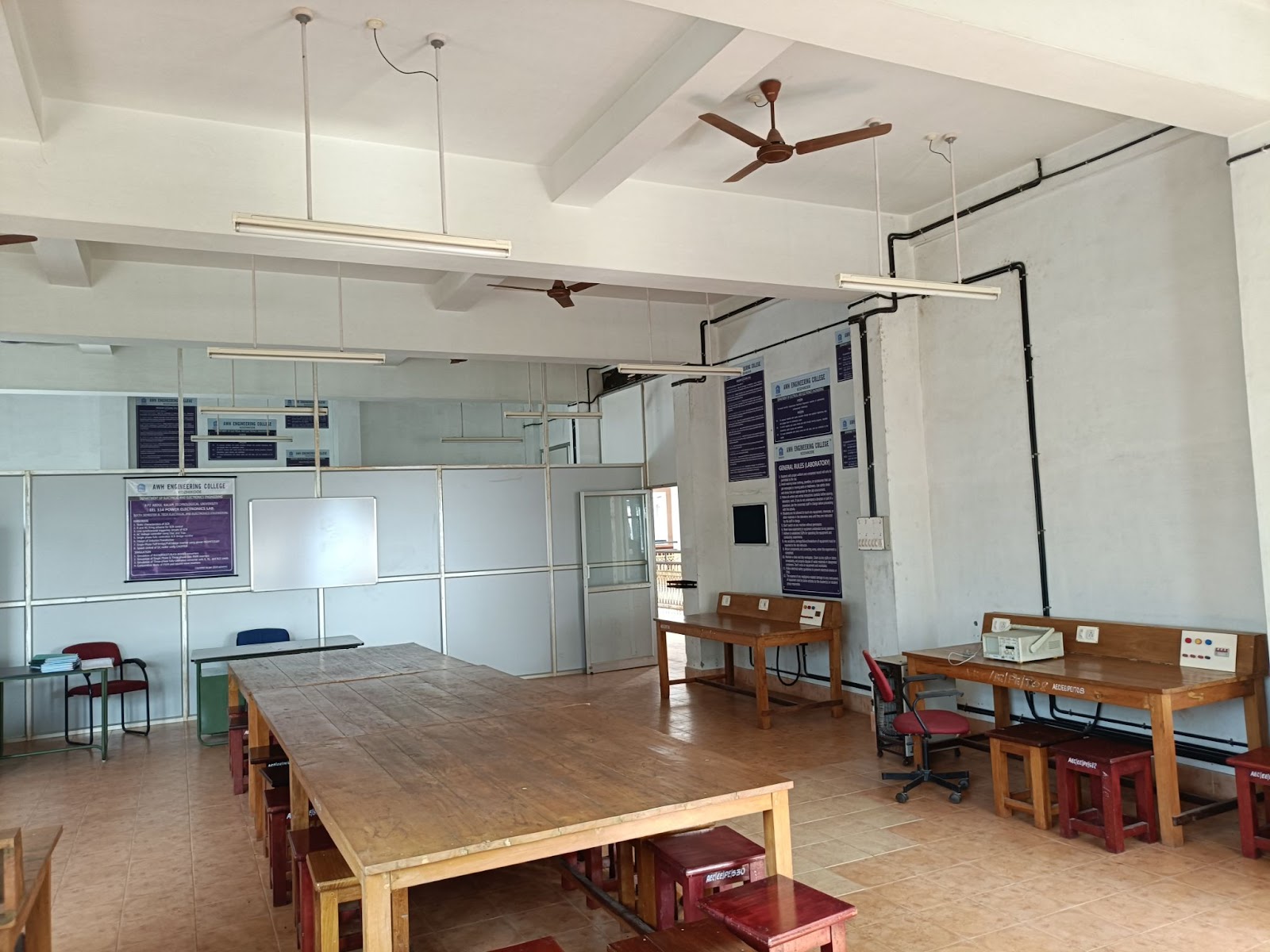
6. Electrical Machines Lab
The Electrical Machines Laboratory is equipped with state-of-the-art facilities to provide hands-on experience in operating and analyzing various types of electrical machines. Key equipment includes:
- DC generators and motors
- Single-phase and three-phase transformers
- Induction motors
- Synchronous machines
- Universal motors
Students are trained to perform experiments on machine characteristics, efficiency analysis, and load testing, fostering a deep understanding of machine performance and industrial applications.
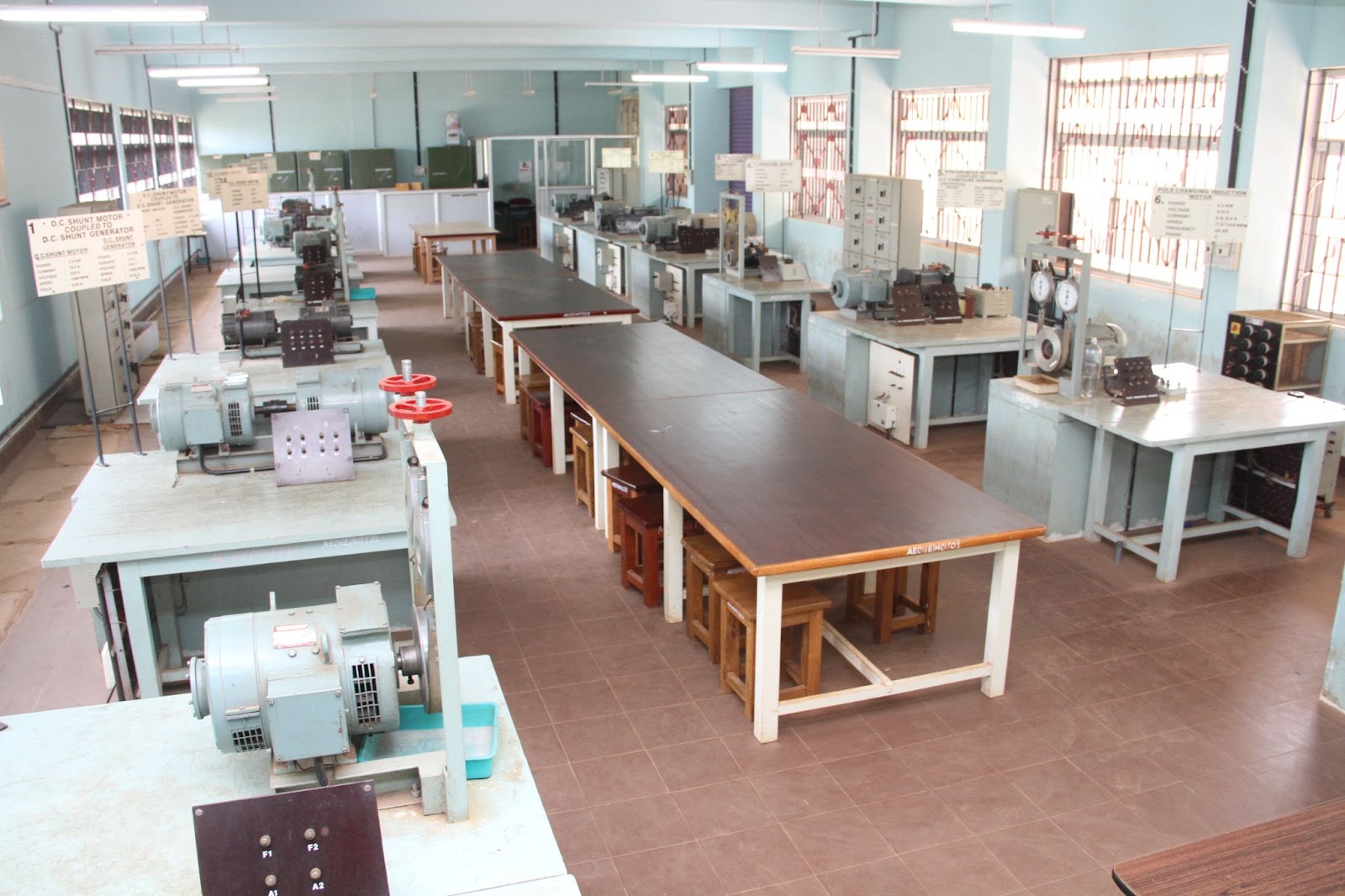
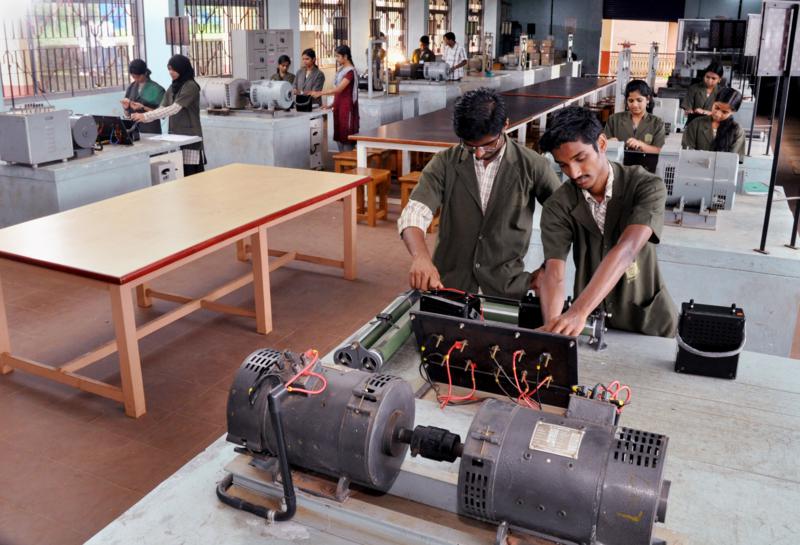
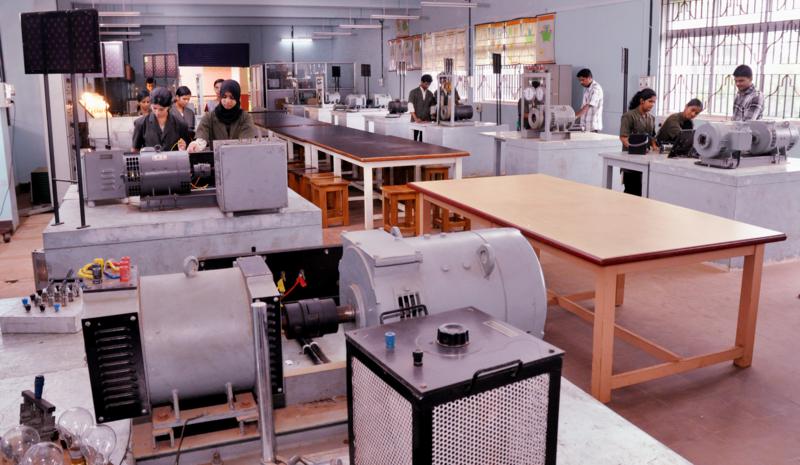
Course leaflets
2019 Scheme
| SEMESTER | LEAFLET |
|---|---|
| B.tech Electrical & Electronics Engineering S3 | S3 leaflet |
| B.tech Electrical & Electronics Engineering S4 | S4 leaflet |
| B.Tech Electrical & Electronics Engineering S5 | S5 leaflet |
| B.Tech Electrical & Electronics Engineering S6 | S6 leaflet |
| B.Tech Electrical & Electronics Engineering S7 | S7 leaflet |
| B.Tech Electrical & Electronics Engineering S8 | S8 leaflet |
Department Library
Department Association
DEPARTMENT ASSOCIATION OF ELECTRICAL AND ELECTRONICS ENGINEERING- RESURGENCE
Introduction
"Resurgence" is the official student association of the Electrical & Electronics Engineering Dept. at AWH Engineering College, formed with the goal of providing a platform for students to engage in extracurricular activities, foster academic collaboration, and promote holistic development. This association plays a key role in bridging the gap between students, faculty, and industry, helping create a vibrant academic environment that extends beyond the classroom.
Overview
"Resurgence" serves as a catalyst for students' intellectual, social, and professional growth within the department. The association organizes and coordinates a range of events throughout the academic year, including workshops, seminars, technical and cultural fests, guest lectures, and inter-college competitions. These activities are designed to enhance students' skills, broaden their horizons, and create opportunities for networking and collaboration. The association's operations are driven by student leaders and supported by faculty mentors, ensuring both leadership development and academic alignment.
Objectives
- Academic Enrichment: To organize seminars, workshops, and guest lectures by industry experts and academicians that complement the curriculum and expose students to emerging trends in the field.
- Skill Development: To facilitate various events, competitions, and training programs that foster creativity, critical thinking, and practical skills among students.
- Networking Opportunities: To connect students with professionals, alumni, and industry leaders, enabling them to gain insights, mentorship, and career guidance.
- Fostering Leadership: To provide students with leadership opportunities through event organization, teamwork, and management of the association’s activities.
- Community Building: To create a sense of unity and collaboration among students and faculty, promoting an inclusive environment for academic and personal growth.
Through these objectives, "Resurgence" strives to empower students, cultivate their leadership potential, and enrich their educational experience.
ASSOCIATION MEMBERS 2024-2025
|
Sl no |
Name |
Batch |
Designation |
|
1 |
Mr.Ubaid M V |
S7 EEE |
President |
|
2 |
Mr.Abhiram Subhash |
S5 EEE |
Secretary |
|
3 |
Mr.Abdulla Bin Mohammed Rasi P P |
S3 EEE |
Joint Secretary |
|
4 |
Mr.Anshad C V |
S7 EEE |
Treasurer |
|
5 |
Mr.Nafih CK / Mr.Binan Muhammed |
S1 EEE/S3 EEE |
Media wing representatives |
|
6 |
Ms.Sreelakshmi A |
S3 EEE |
Girl Representative |
|
7 |
Mr.Abdul Basith / Mr. Omar Gilash |
S1 EEE |
Office bearers from S1 |
Achievements
Ms. Fathima Sapna P
- Was awarded MBA Degree in 2024 from Indira Gandhi National Open University (IGNOU)
- NPTEL MOOC course-Research Methodology-1%Topper with 91% in 8 week-Feb April 2024-
- Best Teacher Award
- NPTEL MOOC course-Non Conventional Energy resources-Elite Topper with 93% in 12 week-Jan April 2019-
Magazine/Newsletter
Students Publications and Projects
| Month & Year | Student Name | Publication/Conference details |
|---|---|---|
| May 2024 | Abisudh KS, Abhinand V, Abhin Chandra C, Mohammed Safwan PM, Jasmine P | THE SELF-BALANCING ELECTRIC MOTORCYCLE WITH ADAPTIVE AERODYNAMICS IJARSCT - e-ISSN: 2395-0056, p-ISSN: 2395-0072 - Volume 11, Issue 5, May 2024 |
| August 2024 | Abhishek K, Nevin B Raj, Arun K, Abdusamad T, Jasmine P | Smart Electric Bike Stand IRJET - e-ISSN: 2319-8753, p-ISSN: 2347-6710 - Volume 13, Issue 8, August 2024 |
R&D
Distinguished Alumni

Mr.Clint Sunny
Analytics Manager at Deloitte,Australia

Mr.Ajay Menon
Senior Engineer, Ernst and Young, UAE

Ms.Ruby Rajan
Electrical Engineer Hitachi Energy, Sweden
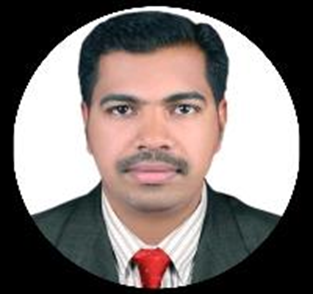
Mr.Midhun Gangadharan
Electricity Network Engineer, UAE
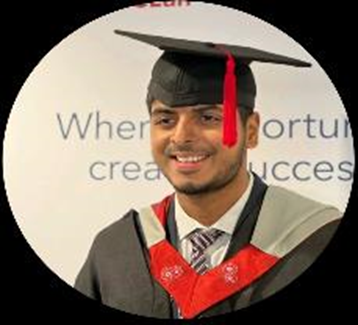
Akash Gopinath
Portfolio Manager Stern Energy, United Kingdom
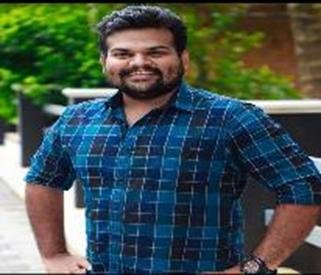
Dr.Arun.T.Nair
Project Engineer NIELIT, Kozhikode

Mr.Muhammed Ashique
Senior Electrical Engineer Arcadis University, UK
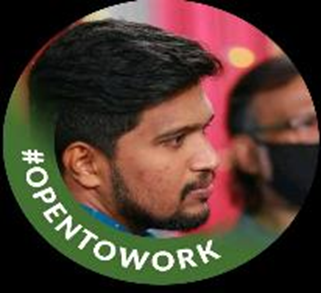
Mr.Gokul Raj P.R
Sr. Electrical Engineer Sobha Constructions, UAE

Mr.Musheer Ahammed
Lighting Design Specialist, IGBC AP, UAEC
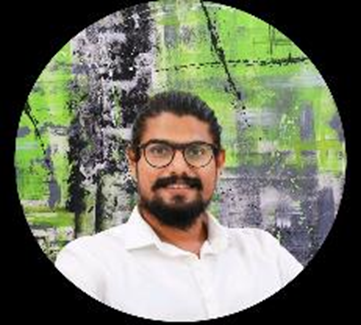
Mr.Jithin Mohandas
Product Manager YES Machinery, UAE
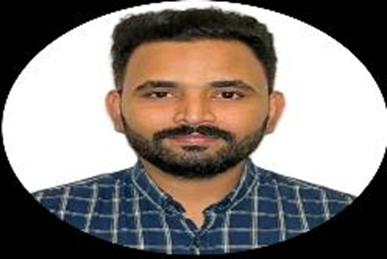
Mr.Muhammed Thaha N C
Electronics Design Engineer Siemens, United States
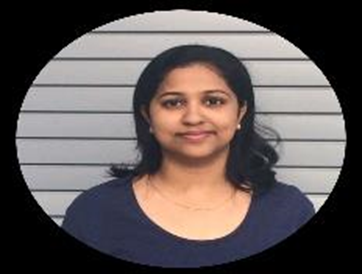
Ms.Jyothis Francis
Systems and Data Analyst Ministry of the Solicitor, Canada
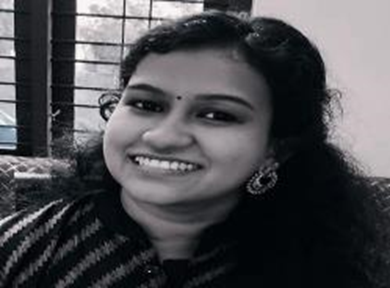
Ms.Archana. V
Flight control Engineer, Airbus , Bangalore

Mr.Anuj V
Senior Hardware Design Engineer,Tata Elxsi, Thiruvananthapuram
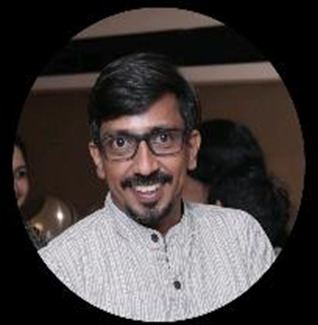
Vijith Valassery
General Manager Projem Consulting Pvt Ltd, Kerala

Mr.Khaleel Jibran M
CEO , Greenspark infra consultants pvt ltd, Kerala
Question Bank
Downloads
2019 Scheme Question Papers
S1
S2
S3
S4
S5
S6
S7
S8
Contact us
Head Of The Department
|
|
|
|
|
|
|
|
|
|
Staff & Faculty
Head of the Department
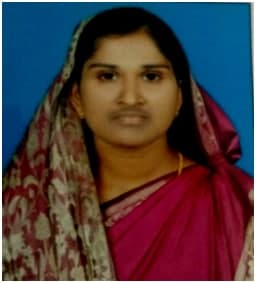
|
|
hodee@awhengg.org |
|---|
Teaching Staffs
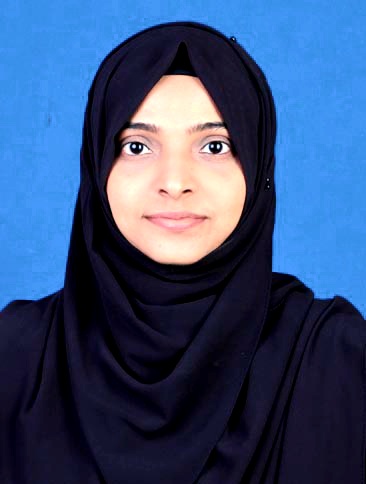
|
|
fathimasapna@awhengg.org |
|---|
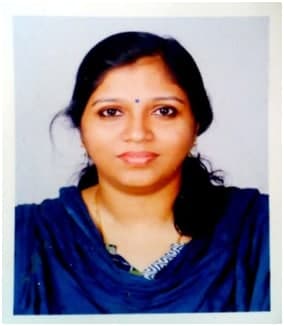
|
|
babitha@awhengg.org |
|---|
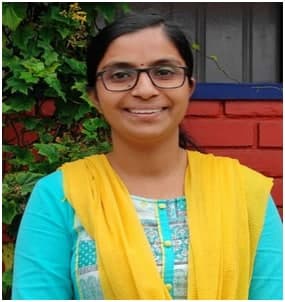
|
|
shaletabraham@awhengg.org |
|---|
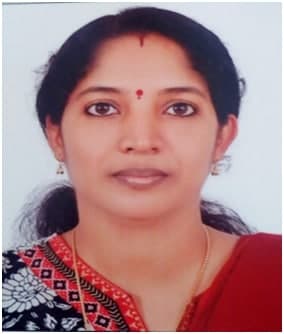
|
|
rajani@awhengg.org |
|---|
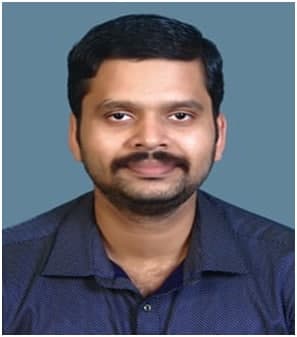
|
|
muralikrishnan@awhengg.org |
|---|
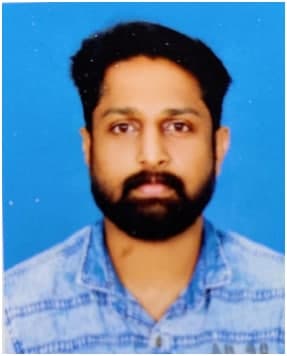
|
|
rohith@awhengg.org |
|---|
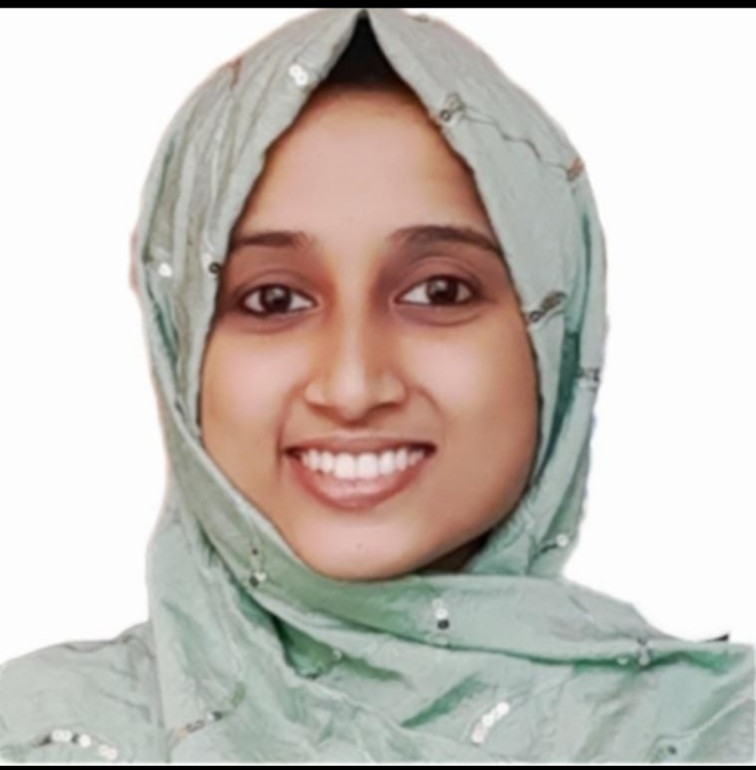
|
|
najmapi007@gmail.com |
|---|
Non Teaching Staffs
